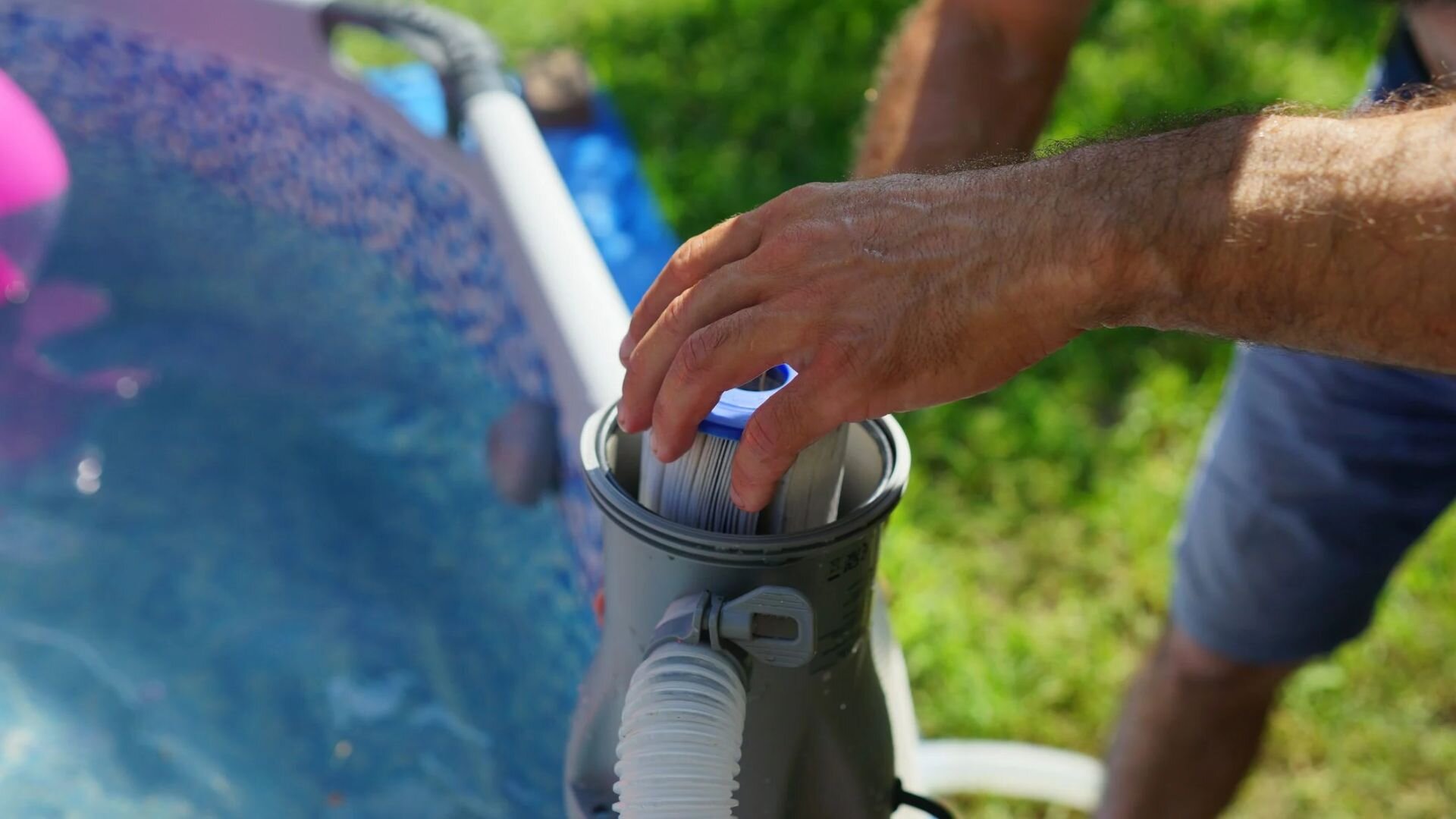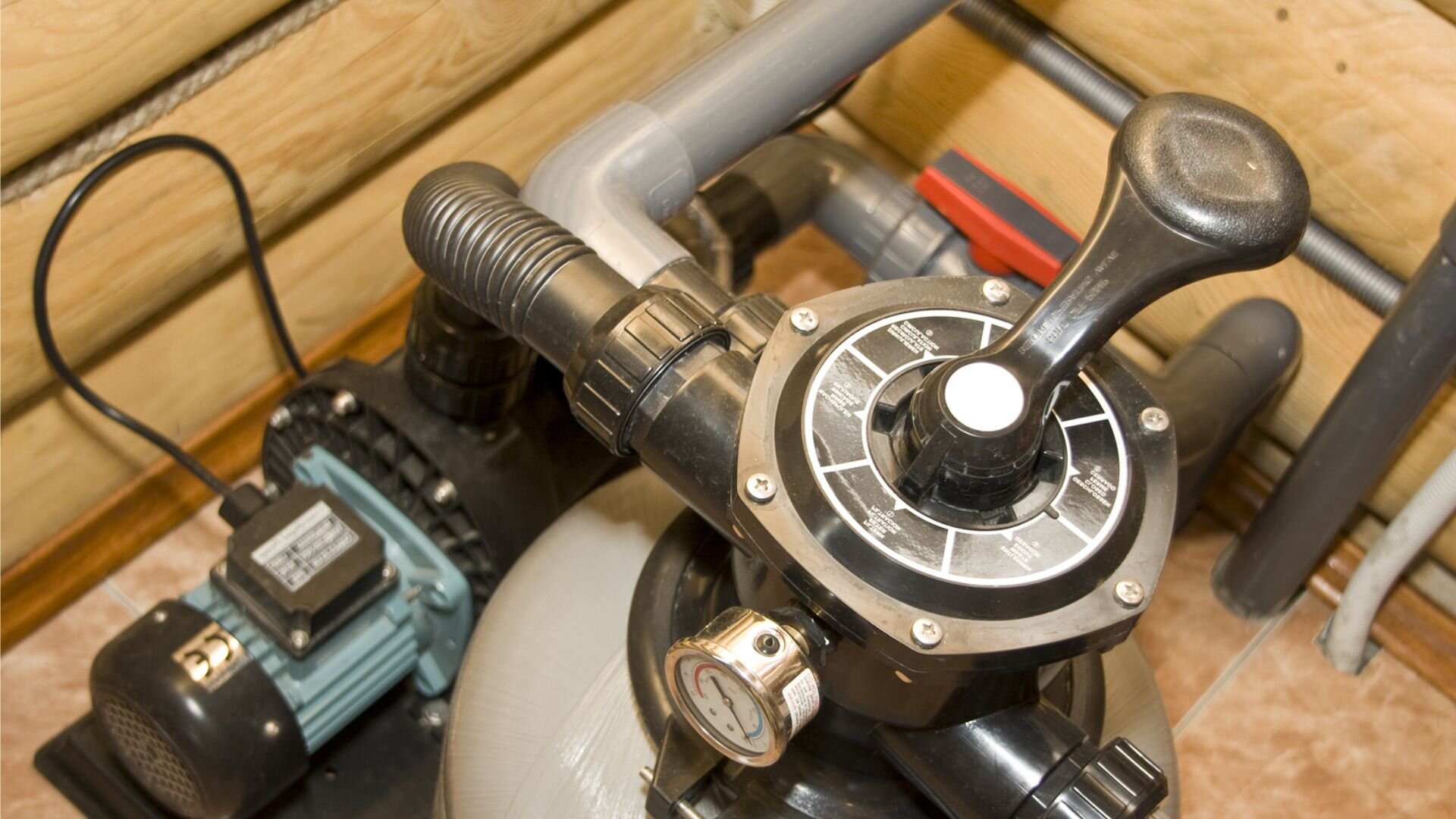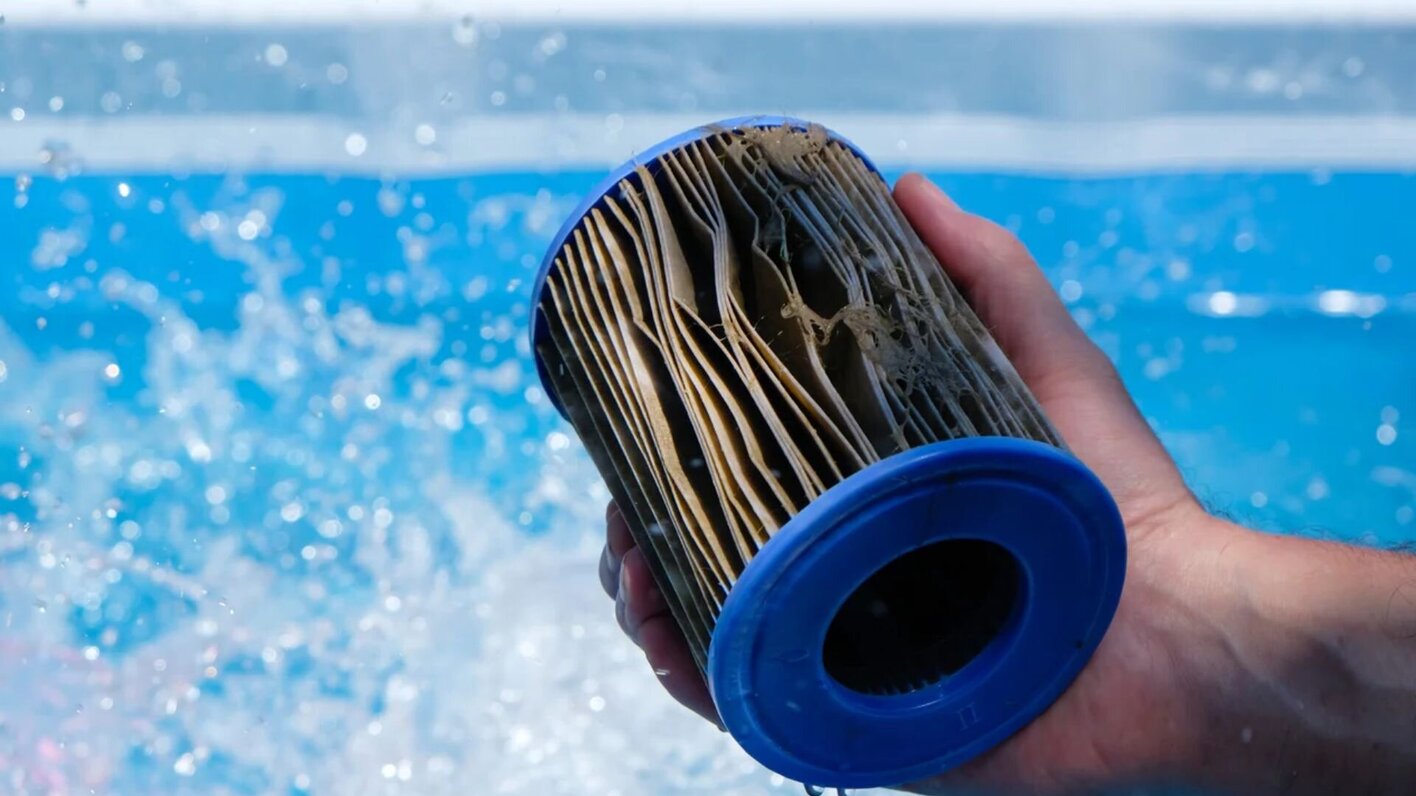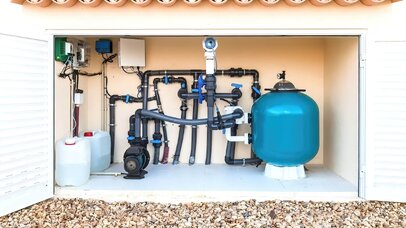Choosing the optimal filter size is one of the most important decisions you’ll make as a pool owner. The filter acts as the beating heart of your pool’s circulation system - continuously scrubbing away dirt, debris, and contaminants to keep water fresh and sanitary for swimming.
Undersizing your filter is a recipe for frustration. Reduced circulation causes debris build-up, murky water, and even slippery algae outbreaks. But going too big strains your pool equipment and guzzles electricity for no good reason. You want your filter right-sized to handle the unique needs of your pool.
The idea of calculating flow rates and turnover times sounds daunting. But don’t worry. We’ll walk through the process step-by-step in this guide. We’ll explain the key factors that determine ideal filter capacity. You’ll learn to measure your pool’s volume, choose the right filter type, and tweak for special considerations.
Follow along, and you’ll be equipped to select the perfect filter for crystal-clear water all season long. With the right filter size, you’ll save money, time, and frustration while enjoying a sparkling clean pool for years.
Why Pool Filter Size Matters
Imagine your pool’s filter as the beating heart of its circulation system. This hardworking organ constantly pumps water through its chambers to trap and remove icky contaminants. Dirt, debris, bugs, leaves, algae - you name it, the filter catches it to leave water fresh and clear.
But what happens when the heart is too small or weak? The circulation slows, letting contaminants build up and turn water cloudy or green. Yuck! On the other end, an oversized filter is equally problematic.
An undersized filter can’t keep up with circulation demands. Water flow decreases, meaning chemicals aren’t dispersed effectively. Dead algae and debris accumulate in corners instead of being filtered out. No one wants to swim in a murky soup filled with hidden gunk!
Meanwhile, an oversized filter forces water through the system too rapidly. This stresses pool pipes and equipment, causing damage over time. Plus, you’re paying big electricity bills for all that unnecessary pumping. The takeaway is that pool filter size matters—a lot. When properly sized, your filter removes contaminants efficiently without overworking itself or your plumbing.
Determining Your Pool’s Needs
Choosing the right pool filter size depends on two key factors:

Pool Volume
The volume of water your pool holds determines the filter capacity required. Let’s calculate volume:
For a basic rectangular pool:
Length x Width x Average Depth x 1000 = Volume (litres)
For freeform pools:
Break the shape into rectangles/circles. Calculate each section’s volume, then add them together.
Measuring length, width, and depth gives the volume in litres your filter must accommodate. Generally, larger pools need larger filters.
Flow Rate
Flow rate is the volume of water flowing through the filter per hour(in litres per minute). Check your pump’s specs for its maximum flow rate. As a rule of thumb, choose a filter with a slightly higher flow rate than your pump. This prevents the filter from bottlenecking circulation.
Combining Volume and Flow Rate
Together, volume and flow rate give you the turnover rate - how long it takes to filter the full volume of water completely. Most pools need a 6-8 hour turnover.
You can calculate turnover time with your pool’s volume and target flow rate. This shows if the filter can meet your pool’s circulation needs.
The math may seem intimidating, but it points you toward the appropriately sized filter for crystal-clear water all season long. Consult pool pros if you need help with any measurements or calculations.
Types of Pool Filters
There are three main types of pool filters to choose from:

Sand Filters
- Use #20 silica sand as the filter media
- Ideal for large commercial pools
- Require backwashing to clean
- Provide thorough filtration
- Range of sizes available
Cartridge Filters
- Contains pleated polyester cartridges
- Good for small to mid-sized pools
- Cartridges are removed and rinsed to clean
- Offer easy maintenance
- Come in various cartridge capacities
DE Filters
- Use diatomaceous earth (DE) powder as the filter media
- Suitable for all pool sizes
- DE coats the filter grids to trap contaminants
- Require disassembly to clean/replace DE
- Provide extremely fine filtration
Talk to your pool company about which filter type best suits your pool size and specific needs. They can recommend the appropriate capacity and features based on whether you have a residential or commercial pool. The good news is that all these filter types come in a range of sizes to give your pool the ideal filtration performance.
Fine Tuning Your Filter Size
Beyond basics like pool volume and flow rate, additional considerations may impact your ideal filter size.
Climate and seasonal weather patterns influence the debris load entering your pool. Areas with high winds, lots of vegetation, heavy pollen, or frequent rainstorms require extra filtration capacity to handle the extra debris.
Take into account your pool’s landscaping as well. Trees, gardens, and water features add organic debris like leaves and grass into the mix. Choosing a filter with more filtration power helps manage this additional debris load.

The amount of use your pool gets is also a factor. Pools with frequent swimmers or large gatherings need increased circulation capacity to handle the bather load.
And don’t forget about maintenance tasks. Staying on top of backwashing sand filters, replacing spent DE, and rinsing cartridges keeps any filter working at peak operating efficiency.
Carefully assessing these secondary factors allows you to fine-tune your filter capacity to match the unique needs of your pool setup. An arborist can even estimate the leaf load from surrounding trees to help inform your filter size calculations. And remember, it’s simpler to size up than down. When in doubt, choose a filter with a little more capacity.
Get Your Pool Filter Sized Right
As we’ve covered, dialling in the perfect pool filter size involves careful calculations - but it’s worth the effort. Taking the time to size your filter properly ensures your pool water stays crystal clear and ready to enjoy all season long.
Use this guide to understand the key factors like volume, flow rate, and turnover time. Determine your pool’s unique filtration needs. Don’t hesitate to enlist the help of pool professionals as needed to select the appropriate filter type and capacity.
The team at The Pool Co has been designing and installing pool filtration systems across Sydney. Our experts can assess your pool, make informed equipment recommendations, and ensure your filter is sized just right.
Contact The Pool Co to get help fine-tuning your pool filter selection. We’ll ensure you choose the perfect model to maintain sparkling, clean, healthy water for years. Spending the summer swimming in a properly filtered pool, is time and money well spent.
Don’t leave it to chance - get pool filtration right the first time. Call The Pool Co in Sydney today to discuss the filter to maximise your swimming pleasure this season!



